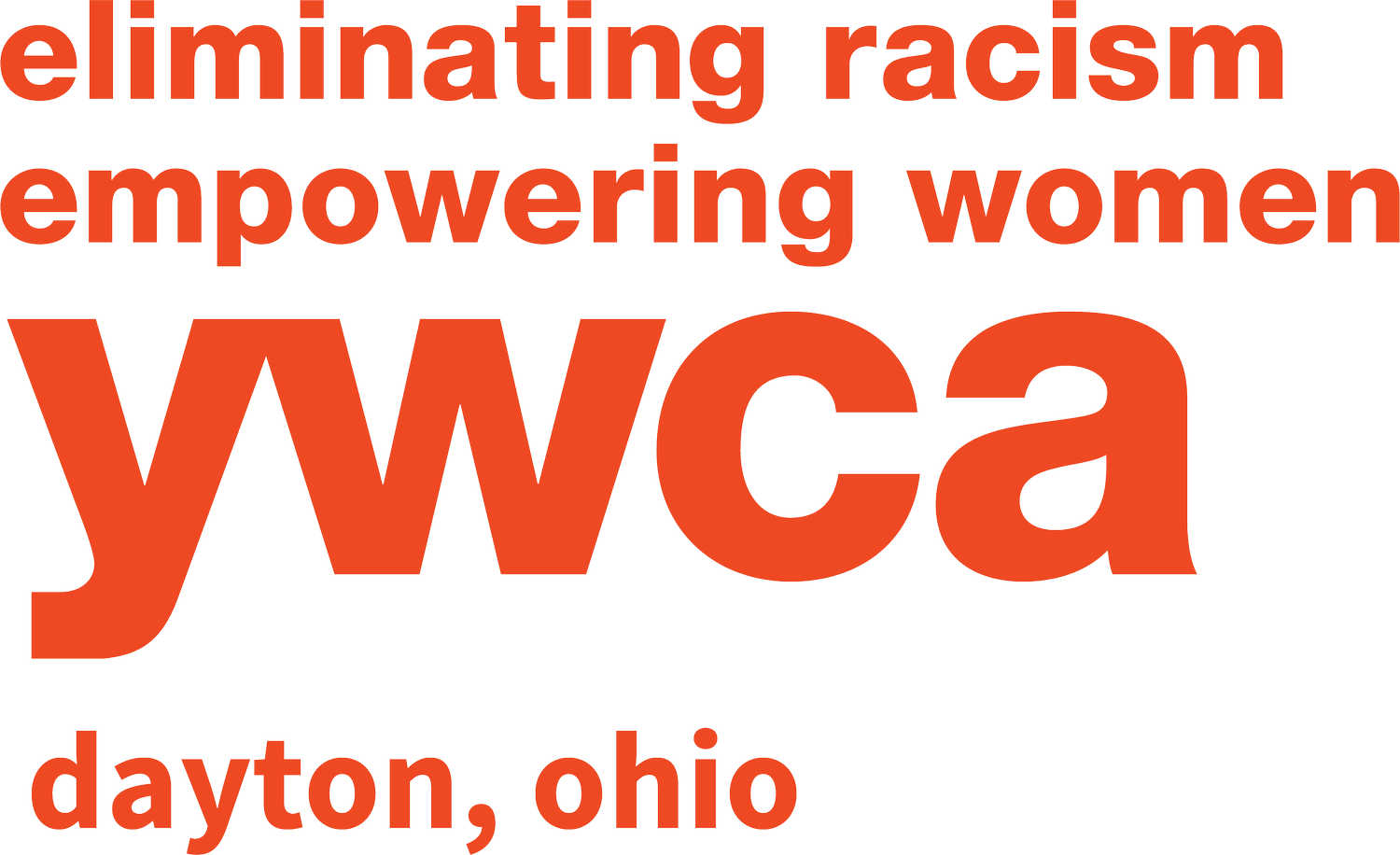Taking the first -- or the seventh -- step
 A lack of safe and affordable housing is reported as one of the primary barriers survivors of domestic violence face when they choose to leave an abusive partner – which is why it takes, on average, seven times before a survivor permanently leaves an abusive relationship, according to the National Domestic Violence Hotline.YWCA Dayton’s domestic violence shelters – the only ones in Montgomery and Preble counties – not only provide immediate emergency shelter for those fleeing abuse; they also connect survivors with a path forward to a safe, secure new home.“Many of our clients have not felt safe in a really long time – sometimes never due to childhood abuse and trauma,” explained Michelle Sayer, clinical director. “Safe, stable housing is a critical step because it allows our clients the time and opportunity to address other areas of their lives that have been impacted. They can focus on returning to school, they can relax and get out of ‘fight or flight’ mode, they can be more present for their children, they can become community leaders and be a voice for others who aren’t usually heard.”Sayer said typical barriers that shelter clients face include a lack of supports, concerns about neighborhood safety and confidentiality, and landlords who are often unwilling to work with survivors. Financial abuse is present in 99% of abusive relationships – restricting access to family finances, prohibiting employment, damaging credit scores – all of which heavily impact a survivors’ ability to secure their own housing.“A lack of available, safe housing is one of the top barriers that keeps women in shelter,” Sayer said, noting that the average shelter stay lasts about 90 days. “We don’t want someone to leave shelter without a safe place to live.”Breaking through multiple barriers requires a team approach – especially when the COVID-19 pandemic added another layer of challenges. Thanks to the coordinated efforts of YW’s shelter, crisis, and housing services teams, one recent client was able to move from shelter to housing within just 60 days.“Like most survivors, this client experienced multiple barriers, including a recent eviction caused by her abuser’s behavior, untreated mental health challenges, and working multiple jobs to support herself,” said Karen Nieport, rapid rehousing manager. “But our work is about collaboration and constant communication, and together, we made it happen.”As they exit shelter, clients receive a “Welcome Home” starter kit plus clothing, home goods, and food from YW's Hope's Closet and onsite food pantry. They also continue to receive aftercare case management services – because moving toward healing requires wrap-around support, whether it’s the first step, or the seventh.
A lack of safe and affordable housing is reported as one of the primary barriers survivors of domestic violence face when they choose to leave an abusive partner – which is why it takes, on average, seven times before a survivor permanently leaves an abusive relationship, according to the National Domestic Violence Hotline.YWCA Dayton’s domestic violence shelters – the only ones in Montgomery and Preble counties – not only provide immediate emergency shelter for those fleeing abuse; they also connect survivors with a path forward to a safe, secure new home.“Many of our clients have not felt safe in a really long time – sometimes never due to childhood abuse and trauma,” explained Michelle Sayer, clinical director. “Safe, stable housing is a critical step because it allows our clients the time and opportunity to address other areas of their lives that have been impacted. They can focus on returning to school, they can relax and get out of ‘fight or flight’ mode, they can be more present for their children, they can become community leaders and be a voice for others who aren’t usually heard.”Sayer said typical barriers that shelter clients face include a lack of supports, concerns about neighborhood safety and confidentiality, and landlords who are often unwilling to work with survivors. Financial abuse is present in 99% of abusive relationships – restricting access to family finances, prohibiting employment, damaging credit scores – all of which heavily impact a survivors’ ability to secure their own housing.“A lack of available, safe housing is one of the top barriers that keeps women in shelter,” Sayer said, noting that the average shelter stay lasts about 90 days. “We don’t want someone to leave shelter without a safe place to live.”Breaking through multiple barriers requires a team approach – especially when the COVID-19 pandemic added another layer of challenges. Thanks to the coordinated efforts of YW’s shelter, crisis, and housing services teams, one recent client was able to move from shelter to housing within just 60 days.“Like most survivors, this client experienced multiple barriers, including a recent eviction caused by her abuser’s behavior, untreated mental health challenges, and working multiple jobs to support herself,” said Karen Nieport, rapid rehousing manager. “But our work is about collaboration and constant communication, and together, we made it happen.”As they exit shelter, clients receive a “Welcome Home” starter kit plus clothing, home goods, and food from YW's Hope's Closet and onsite food pantry. They also continue to receive aftercare case management services – because moving toward healing requires wrap-around support, whether it’s the first step, or the seventh.
